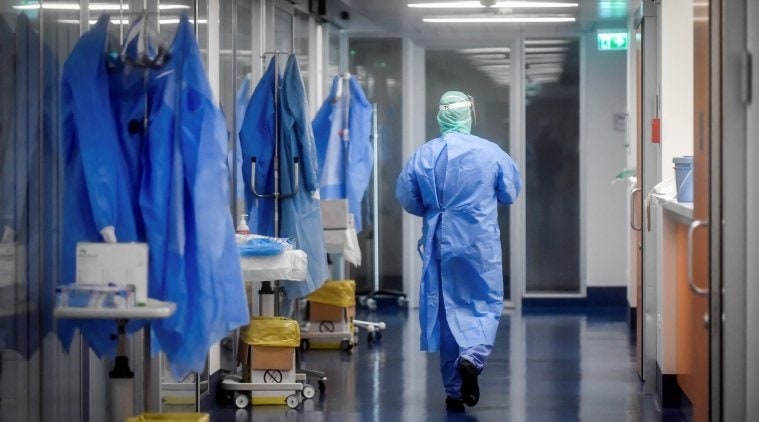 The National Health Service (NHS) in UK has opened rehabilitation clinics for Covid-19 patients who may have permanent lung damage. (Representational)
The National Health Service (NHS) in UK has opened rehabilitation clinics for Covid-19 patients who may have permanent lung damage. (Representational)
For Covid-19 patients who have been discharged from hospitals, the road to recovery can still be a lengthy one with some showing long-term as well as short-term medical complications. Many recovered patients have complained of loss of taste, loss of smell, body fatigue, body pain, low blood pressure, stroke, blood sugar fluctuation and cardiac problems — now common signs during convalescence.
Doctors across the city said apart from treating actively infected Covid-19 patients, they also have to monitor patients discharged after treatment. Patients are taking 3-4 weeks to regain their sense of taste, and longer for the sense of smell to return.
In its last meeting on Monday, the government-appointed task force also discussed the need to have rehabilitation protocol for recovered patients on lines of what the UK is following. The National Health Service (NHS) in UK has opened rehabilitation clinics for Covid-19 patients who may have permanent lung damage.
Mumbai has a 39,149 recovered count, and the state has 77,453 people who have recovered from Covid-19.
Dr Nitin Karnik, head of medicine department in Sion hospital, said hypoxic patients, those with low oxygen saturation levels, are prone to get lung fibrosis post Covid-19. “These patients required high pressure oxygen for several days. It has scarred and damaged their lungs and this could be permanent damage,” Karnik said. He is advising deep breathing, physiotherapy and yoga for better lung functions.
The task force discussed the need for physiotherapy for recovered patients at home, Karnik, also a task force member, added.
Patients, with borderline diabetes, are now noticing full-fledged fluctuation in blood sugar levels after discharge. Doctors said almost all patients complain of body pain and fatigue. Mildly symptomatic patients suffer a loss of smell and taste, tiredness after walking a short distance and body pain, while several severely ill patients who recovered are suffering from damaged lungs, thrombosis (blood clot in vessels) and need blood thinners.
“The coronavirus is devious. It is manifesting in heart, in kidneys, in lungs, through several means. I saw several urinary tract infection cases post discharge,” said Dr Tanu Singhal, infectious disease expert in Kokilaben Dhirubhai Ambani hospital.
Singhal said they plan to follow up each Covid-19 patient for 3-6 months. Families are advised to keep pulse oximeters at home to measure oxygen saturation levels, help in breathing exercises and get physiotherapy for patients.
“The virus is worse in males, it tends to hibernate in them and then progresses later. I am seeing cases of myocardial infarction, stroke, kidney problems after Covid infection,” said infectious disease expert Dr Om Srivastava. Srivastava said a patient’s immune system, metabolism and co-morbidities also affect the recovery phase. “After discharge patients are complaining of headache, limb pain, partial vision loss. Some of it is temporary, but some damages could be permanent. Vitamin D deficiency and hypertension are also factors,” he said.
Dr Jalil Parkar, who is himself recuperating from Covid-19 after discharge from Lilavati hospital last week, said he and his wife both have lost sense of taste and smell. “I don’t get any taste of my coffee. In initial days the appetite is low, it takes few days to grow.”
In some cases, patients who are critically ill have damaged kidney functions and require dialysis. Doctors said they remain unsure whether the need for dialysis will remain life-long.